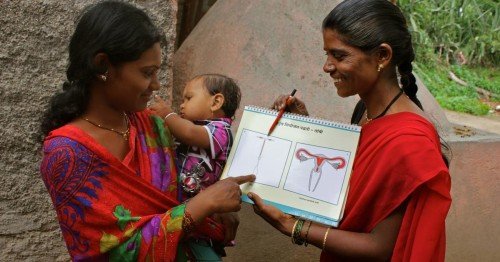India is a country with a rich cultural heritage and diverse population, but it is also a country where the topic of sexual health is often considered taboo and ignored. Despite being one of the largest populations in the world, many individuals in India lack access to accurate information and quality healthcare services related to sexual health. In this blog post, we aim to shed light on the current state of sexual health in India and provide a comprehensive guide for individuals seeking information about sexual health.
Overview of Sexual Health in India
Sexual health refers to a state of physical, emotional, mental and social well-being in relation to sexuality. It encompasses several aspects of sexual health, including the prevention of sexually transmitted infections (STIs), unwanted pregnancy, and sexual dysfunctions, as well as the promotion of healthy sexual relationships and sexual rights.
In India, the lack of sex education in schools, limited access to quality healthcare services, and a general reluctance to discuss sexual health openly have contributed to a lack of awareness and poor sexual health outcomes. According to a recent survey, nearly 60% of Indian couples do not use any form of contraception, resulting in high rates of unintended pregnancy and maternal deaths. Furthermore, India has a high burden of STIs, including HIV and AIDS, and the prevalence of sexually transmitted infections is expected to increase in the coming years.
Challenges Facing Sexual Health in India
There are several challenges that India faces in addressing the issue of sexual health, including:
-
Lack of sex education: In India, sex education is not part of the formal curriculum in most schools, and there is limited access to accurate information about sexual health. This results in a lack of knowledge about sexual health and the prevention of STIs and unintended pregnancy.
-
Stigma and discrimination: The taboo surrounding sexual health and the lack of open discussion about the topic has resulted in a culture of stigma and discrimination against those who seek information and services related to sexual health. This often results in individuals being reluctant to seek care and support when needed.
-
Limited access to healthcare services: Access to quality healthcare services related to sexual health is limited in many parts of India, particularly in rural areas. This can result in individuals seeking care from untrained providers or not seeking care at all.
-
Inadequate funding: Despite the importance of sexual health, funding for healthcare services related to sexual health remains inadequate in India. This results in a lack of resources and trained healthcare providers, which in turn limits access to quality care and services.
Sexual and Reproductive Health Rights in India
In India, the constitution recognizes the right to health as a fundamental right, and the government has made efforts to improve access to healthcare services, including those related to sexual and reproductive health. In addition, India is a signatory to several international agreements that promote sexual and reproductive health rights, including the International Conference on Population and Development (ICPD) Programme of Action and the Beijing Declaration and Platform for Action.
Despite these efforts, the implementation of sexual and reproductive health rights in India remains limited, and many individuals still face barriers to accessing quality care and services. The government must make a concerted effort to ensure that all individuals in India have access to accurate information and quality healthcare services related to sexual and reproductive health.
Prevention of Sexually Transmitted Infections (STIs)
In India, the prevalence of sexually transmitted infections, including HIV and AIDS, is high, and the risk of transmission remains a significant concern. To prevent the spread of STIs, it is important to engage in safe sexual practices, such as using condoms during sexual intercourse and being tested regularly for STIs.
Prevention of sexually transmitted infections (STIs) is an important aspect of public health in India. Here are some of the key methods to prevent STIs:
-
Consistent and correct use of condoms: Condoms are the most effective method of reducing the transmission of STIs. It is important to use them consistently and correctly during sexual activity to reduce the risk of infection.
-
Limiting the number of sexual partners: Having multiple sexual partners increases the risk of exposure to STIs. Limiting the number of sexual partners can reduce the risk of STI transmission.
-
Regular STI screening: Regular STI screening can detect infections early and prompt treatment can prevent the spread of infection to others.
-
Vaccination: Some STIs, such as Hepatitis B and Human Papillomavirus (HPV), can be prevented through vaccination.
-
Abstaining from sexual activity: Abstaining from sexual activity is the most effective way to prevent STIs.
-
Education and awareness: Educating people about STIs, their transmission, and prevention is an important aspect of STI control. This can help people make informed decisions about their sexual health.
-
Access to STI treatment: People should have access to prompt and effective treatment for STIs to reduce the spread of infection.
It is important to practice safe sex and get tested regularly to prevent the spread of STIs and protect sexual health.
